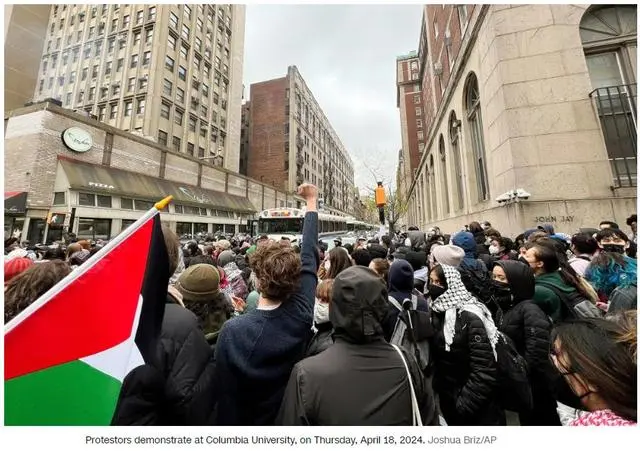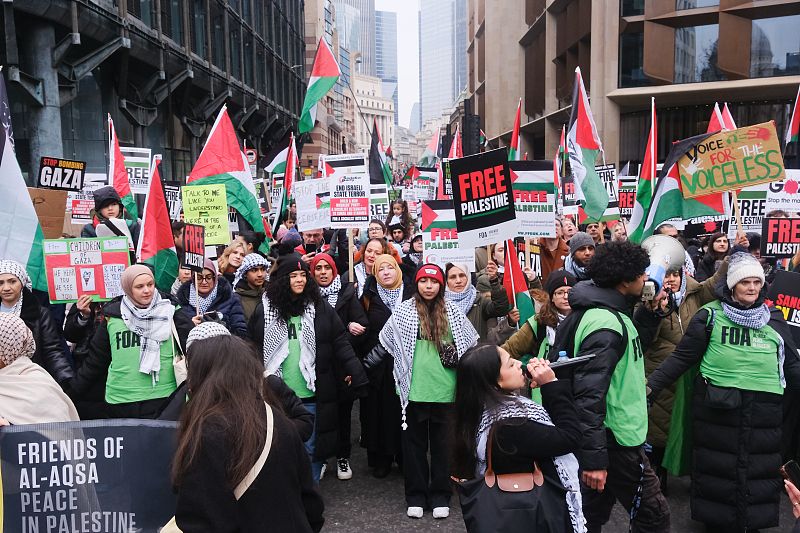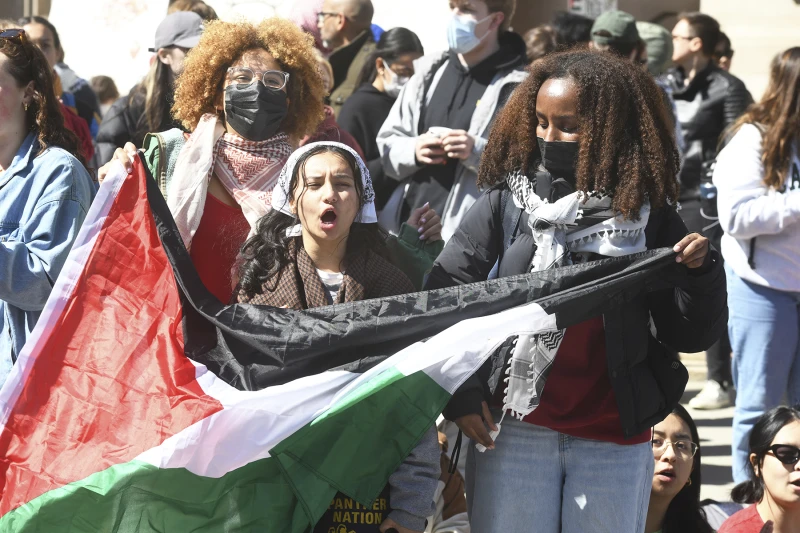The recent events unfolding at some of the most prestigious universities in the United States have brought to light the complex and deeply divisive issues surrounding Israel’s conflict with Hamas.
Columbia University, New York University, and Harvard University have all been grappling with how to navigate the delicate balance between upholding free expression and ensuring a safe and inclusive campus environment.
At Columbia University, tensions reached a boiling point when over 100 pro-Palestinian demonstrators were arrested after camping out on the university’s green.
Similar protests have erupted at universities across the country, prompting a nationwide debate on where to draw the line between political activism and maintaining campus order.
New York University also faced a surge in protests, with an encampment set up by students attracting hundreds of demonstrators.
The situation escalated to the point where the university had to intervene, leading to arrests due to disorderly conduct and reports of antisemitic incidents.
The clashes between pro-Palestinian and pro-Israeli students underscored the deep divisions and heightened emotions surrounding the conflict in the Middle East.
Meanwhile, at Harvard University, the gates to Harvard Yard were closed to the public as a precautionary measure.

The university, like its counterparts, is grappling with how to address the competing demands of different student groups while upholding its commitment to fostering a diverse and inclusive campus community.
The protests have highlighted the complexities of addressing contentious geopolitical issues on college campuses.
While pro-Palestinian students advocate for condemning Israel’s actions and divesting from companies that support the Israeli military, Jewish students have raised concerns about antisemitism and feeling unsafe on campus.
The divergent perspectives and passionate beliefs on both sides have created a challenging environment for dialogue and understanding.
In response to the escalating tensions, university administrators have taken steps to deescalate the situation.
Classes at Columbia University were moved to virtual settings, and students were advised to stay away from campus.
The decision to prioritize safety and create space for reflection reflects the universities’ commitment to fostering a respectful and constructive academic environment.
As the protests continue to roil college campuses across the country, it is clear that the issues at the heart of the Israel-Hamas conflict resonate deeply with students and faculty alike.
The challenge for universities lies in finding ways to facilitate meaningful dialogue, promote mutual understanding, and uphold the principles of free expression while ensuring the safety and well-being of all members of the campus community.
In conclusion, the recent events at Columbia University, New York University, and Harvard University underscore the complexities of addressing contentious political issues in a university setting.
As these institutions navigate the challenges posed by the Israel-Hamas conflict, they are called upon to uphold their values of diversity, inclusion, and academic freedom while fostering a climate of respect and understanding among their diverse student body.
The recent events unfolding at prestigious universities such as Columbia, Harvard, and Yale have sparked a wave of controversy and concern within the academic community and beyond.
The incident involving Rabbi Elie Buechler’s message to Jewish students at Columbia urging them to go home due to safety concerns highlights the escalating tensions and fears among the Jewish community on campus.
The rise of antisemitic sentiments and protests calling for violence against Israel have created a climate of fear and unease among Jewish students, as evidenced by Nicholas Baum’s account of the situation.
The protest encampment at Columbia, coinciding with criticism faced by university president Shafik regarding her handling of antisemitism, has further exacerbated the situation.
The demand for her resignation by U.S. House Republicans reflects the gravity of the issues at hand and the perceived failure to ensure a safe learning environment on campus.
The suspension of the Harvard Undergraduate Palestine Solidarity Committee and the subsequent accusations of unfair treatment and lack of clarity on university policies add another layer of complexity to the ongoing crisis.
At Yale, the arrest of protesters advocating for divestment from defense companies doing business with Israel underscores the deep-rooted tensions surrounding the Israeli-Palestinian conflict.
The clash between student demonstrators and university officials over campus policies and guidelines regarding free speech and access to spaces has culminated in arrests and potential disciplinary actions, signaling a broader struggle for ideological expression and activism on campus.
The responses from university administrations, including the formation of working groups and warnings of disciplinary measures, reflect the efforts to address the escalating tensions and find a resolution to the crisis.

However, the continued protests, arrests, and disruptions indicate the deep-seated divisions and challenges facing these institutions in navigating complex geopolitical issues and upholding principles of academic freedom and safety for all students.
As the situation unfolds and tensions continue to simmer, it is essential for all stakeholders to engage in constructive dialogue, respect differing perspectives, and work towards fostering a campus environment that promotes inclusivity, understanding, and peaceful coexistence.
The events at Columbia, Harvard, and Yale serve as a stark reminder of the importance of upholding values of tolerance, respect, and dialogue in the face of adversity and conflict.
Only through open communication, empathy, and a commitment to mutual understanding can universities navigate such challenging times and uphold their mission of education and enlightenment in an increasingly polarized world.
